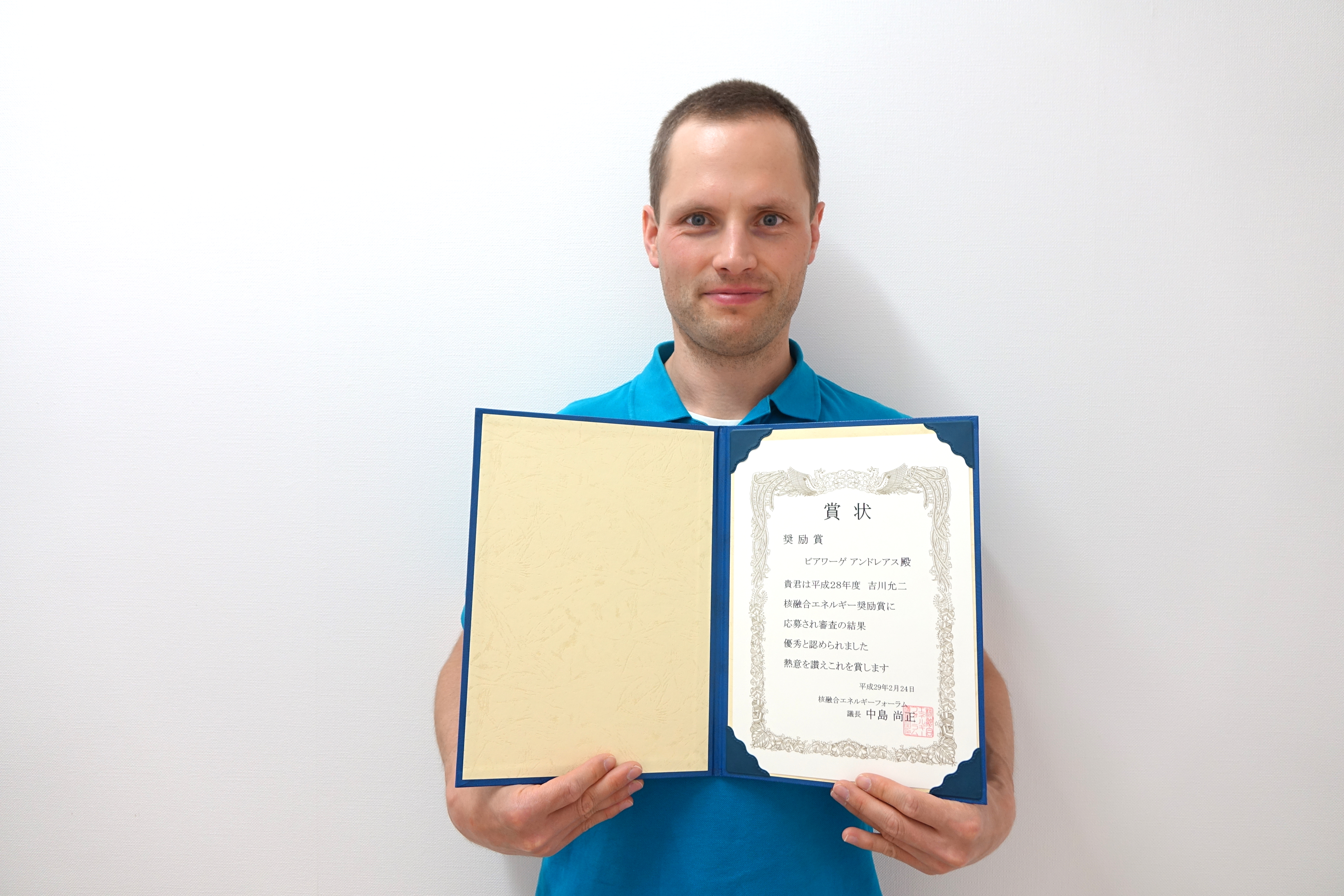At the 10th Fusion Energy forum, held on February 24, 2016, Andreas Bierwage, a principal researcher belonging to the Plasma Theory and Simulation Group at the Fusion Energy Research and Development Directorate, received the Masaji Yoshikawa Prize for Fusion Energy, an award for early career research achievements.

Award title
Development of high-beta scenarios for JT-60SA experiments taking into account effects of energetic-particle-driven waves and instabilities
Description of the award-winning work
Dr. Bierwage has developed a simulation code and analysis method focusing on the interaction between energetic particles and Alfvén waves. This interaction plays a crucial role for burning plasmas in ITER where alpha heating is a key to access the conditions for self-ignition. Utilizing the developed code and analysis method to JT-60U plasmas, he found that the shear Alfvén instabilities driven by energetic ions couple with ion sound waves.
Energy that is converted from Alfvén waves to ion sound wave will be further converted into thermal energy of bulk-ions via Landau damping, so that this mechanism constitutes one of the energy channels for self-heating that can help to sustain burning plasma conditions. The Masaji Yoshikawa Prize is awarded for this finding.
In JT-60SA, powerful NBI will be used to produce high-beta tokamak plasma discharges lasting several 10s of seconds, so that it will play the role of a bridge between ITER and DEMO. The subject of the research funded by this award is to investigate in detail the effect of beam ions on the plasma equilibrium, MHD instabilities and Alfvén instabilities. Via both domestic and international research collaborations, this project will be able to make significant contributions to the realization of the so-called Scenario 5 (high-beta plasmas) in the JT-60SA research plan. For this reason, the proposed research plan received a high rating in the selection committee's evaluation.
Comment
I am very honored to be awarded the 2016 Masaji Yoshikawa Prize for Fusion Energy. First of all, I would like to take this opportunity to thank my teachers, supervisors and collaborators to which I am highly indebted for their patient guidance and support over many years. Moreover, I would like to acknowledge everyone involved in administering the Fusion Forum and the Yoshikawa Prize for their efforts in fostering, encouraging and rewarding advances in fusion science. The success of the international and domestic fusion program, including ITER and JT-60SA, still depends critically on new breakthroughs in basic plasma science and technology. These may sprout unexpectedly any moment, just like the results for which I am receiving this award. Such discoveries require time for free thinking and creativity. I myself am very lucky to still have that freedom. But around me, I see much scientific potential buried under administrative duties. My hope for the near future is that all scientists will be allowed to spend more time with creative research and less time with administration. This should amplify our productivity and increase our chances to discover whatever is necessary to make controlled fusion power plants a reality.
